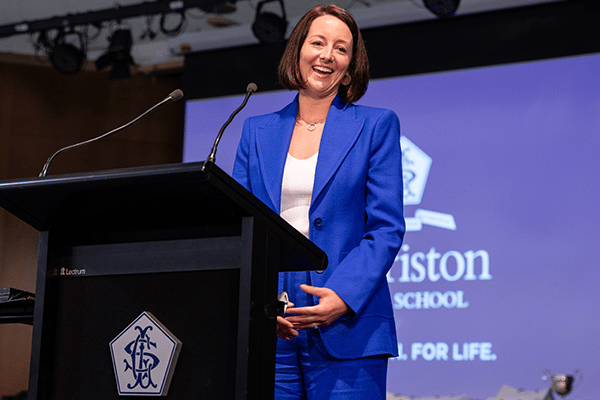Sophie Tissot (2006)
“I believe the only way to increase diversity is to reduce unconscious bias, and we do that by making it normal for women and minority groups to hold positions of leadership.”
Sophie Tissot (nee Riddell) is an alumna who we are celebrating for the indomitable courage she was shown throughout her life and her career facing challenges and overcoming adversity.
Today, she is a Urology Surgical Trainee and Robotics Fellow at St Vincent’s Hospital Melbourne. She completed her medical degree at the University of Adelaide after which she returned to Melbourne to work at St Vincent’s Hospital. She completed a Master of Surgery (University of Sydney), became the inaugural Chief Surgical Resident of St Vincent’s Hospital Melbourne (2017-2018) and gained a position on the Urology Society of Australia and New Zealand surgical training program which she commenced in 2019.
Sophie is currently involved in a project which is a validation study of hydrogel anatomical models to train doctors in robotic surgery. There has been a recent uptake of robotic surgery in favour of open or laparoscopic methods which has resulted in an all-time high in demand for robotic surgical training.
This hydrogel prostatectomy model training, provided through the Australia Medical Robotics Academy (AMRA), has the objective is to change the current approach to teaching robotic surgery, to reduce the overall surgical complication rates that currently sit at 17% at 30 days postoperatively. Sophie and her colleagues believe that virtual simulation and then operating, repetitively, on life-like hydrogel models is a safer, more efficient, and more ethical way to teach robotics.
As a woman in a male-dominated field, there are often intrinsic doubts about one’s skills and preparedness to undertake roles in the medical industry – the classic imposter syndrome. Sophie continues to build her skills and experience by seeking non-traditional educational techniques, which she strongly believes are the way of the future.
At an assembly at the end of 2021, where she accepted the OLA’s inaugural fellowship, Sophie had the following advice for the graduating Year 12s – including using courage to break down the conscious and unconscious biases that exist for women.

Be kind to yourself
For me, my greatest down, was receiving a phone call, in my final year of medical school, telling me my father had committed suicide. Medicine, nor my family or friends could have saved him. This experience made me realise how important our mental health is and I made a promise to myself to always prioritise my mental health. That doesn’t mean I never get sad, or angry, or frustrated. It just means I respect my inner dialogue, and most importantly I am kind and gentle to myself.
Lean in and stay true to who you are
I truly believe that the only way to make change is to put your hand up, lean in and get a seat at the table. In my life I have had the opportunity to sit on the club committee at my Surf Life Saving Club, at a time when our organisation was socially divided and our clubhouse was falling down requiring fundraising effort to rebuild.
I’ve also sat on the Medical Advisory Board at St Vincent’s Hospital as their inaugural chief surgical resident, when junior doctors did not have a voice about their working environment or the support they were receiving for their surgical careers.
In both roles I was certainly the minority regarding my gender and my age.
Intrinsic qualities that I learnt from being a Lauriston Girl and having a mother and aunty who were also Lauriston Girls, gave me the confidence and skills to speak my mind. I found the more I spoke up, the more authentic I was to who I am, the more passionately I behaved and I guess the harder I worked, the more opportunities came my way. I believe the only way to increase diversity is to reduce unconscious bias, and we do that by making it normal for women and minority groups to hold positions of leadership.
Resilience will serve you well
Six months before I started in the national surgical training program for urology, my Aunty whom I was very close with died of a surgical complication. A rare complication in the hands of a very experienced surgeon. To then only months later start my own journey of learning how to operate, this personal experience added another layer of complexity. I had to draw on many of the characteristics of myself that I learnt from being a Lauriston girl, and particularly from the time I had in Howqua. I had to be resilient, I had to work through challenges, and I had to find a way to be comfortable and confident with who I was, and how I was going to live my life.
All Lauriston girls share these characteristics in you, even if they don’t know it. I used to run a surf lifesaving camp for around 100 kids on the Mornington peninsula at the end of their year 9 year. I could always pick the Lauriston girls from the crowd. They had just come back from Howqua, besides for smashing the morning runs, and diving headfirst into the surf, they were the easiest to get along with and they were the toughest.
Adapt to a changing world
Careers in the future will be highly integrated with technology, and artificial intelligence will be used to complete many aspects of your jobs. Technology is often advancing faster than the teaching that is provided to use and integrate it. Those that will succeed in this arena, are the ones that are able to adapt and to seek out alternative, non-traditional methods to learn how to work with technology. Robotic surgery will be a part of my future career, but learning robotics is not a compulsory component of the College of Surgeons Education Program. Hence, I had to look elsewhere, and became involved with the Australian Medical Robotics Academy established by Professor Tony Costello.
Now I have the opportunity a full robotic operation on a hydrogel model of a male pelvis, to remove their prostate without touching a human in a live operating theatre. A unique and priceless learning experience.
SHARE THIS ON

